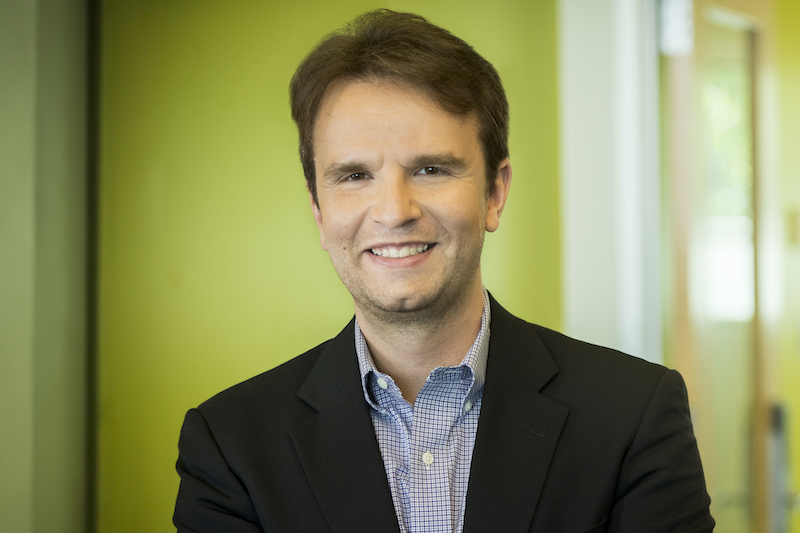Nate Derbinsky
Teaching Professor

Research interests
- Artificial intelligence
- Machine learning
Education
- PhD in Computer Science and Engineering, University of Michigan
- MS in Computer Science and Engineering, University of Michigan
- BS in Computer Science, North Carolina State University
Biography
Nate Derbinsky is a teaching professor at the Khoury College of Computer Sciences in Boston. His research interests combine artificial intelligence, optimization, machine learning, and database systems. He recently helped invent the Boundary Forest Algorithm, an online instance-based approach for supervised and unsupervised learning, as well as the Three-Weight Algorithm, a general and distributed algorithm based on the Alternating Direction Method of Multipliers that has been effectively applied to large-scale problems in robotics, control, protein folding, and multi-dimensional packing. He also works with the Soar cognitive architecture, enabling a broad range of artificial intelligence systems endowed with effective and efficient long-term memory. In work with undergraduates, he created CHUCK, a robot that still needs some work, but will eventually beat its creator in a game of cornhole!
Teaching is Derbinsky's passion, and his mission is to develop and deliver quality computer science education content. He has been teaching computer science, in some form or other, for nearly 20 years, including at the K-12, community college, and graduate levels. He constantly seeks new ways to make complex computer science topics accessible and encourage an increasingly diverse group to understand how fun and transformative computing can be. He has recently dipped his toes in the waters of computer science education, investigating effective methods of service learning and grad-school preparation.
Derbinsky has a strong interest in applying technologies that scale to solve important problems in the world. In 1998, he founded BitX Solutions, a small corporation based in North Carolina. For 11 years, Nate led software-development teams to track evidence for law-enforcement agencies, manage supplies at food banks, provide diagnostic training for neurology interns, and supply comprehensive web-based fellowship/scholarship advising for thousands of students and faculty members at two universities. Nate has also served as a volunteer teacher and technology consultant for Powering Potential, an nongovernmental organization that uses technology to enhance educational opportunities and outcomes in rural Tanzania.
Derbinsky joined the Wentworth Institute of Technology in 2014, where he was awarded the 2017 President's Award for Distinguished Scholarship. Prior to joining WIT, he was a postdoctoral associate at Disney Research, where he specialized in large-scale optimization and machine-learning algorithms. Before that, he briefly worked as a visiting research associate at the University of Hertfordshire, where he researched applications of cognitive architecture for scalable human-robotic interaction studies. While working toward his PhD at the University of Michigan, Derbinsky worked in the Soar group under the supervision of John Laird. As an undergraduate student at North Carolina State University, he studied as a Park Scholar.
Recent publications
-
Addressing Challenges in Teaching-Track Faculty Promotion
Citation: Christine Alvarado, Nate Derbinsky, Sarah Heckman, Manuel A. Pérez-Quiñones, Harini Ramaprasad, Mark Sherriff. (2025). Addressing Challenges in Teaching-Track Faculty Promotion SIGCSE (2), 1685-1686. https://doi.org/10.1145/3641555.3704713 -
Interviewing the Teaching Faculty Hiring Process
Citation: Geoffrey Challen, Victoria Dean, Nate Derbinsky, Matt X. Wang, Jacqueline Smith. (2024). Interviewing the Teaching Faculty Hiring Process SIGCSE (2), 1525-1526. https://doi.org/10.1145/3626253.3631664 -
Using domain knowledge in coevolution and reinforcement learning to simulate a logistics enterprise
Citation: Ying Zhao , Erik Hemberg, Nate Derbinsky, Gabino Mata, Una-May O'Reilly. (2022). Using domain knowledge in coevolution and reinforcement learning to simulate a logistics enterprise GECCO Companion, 514-517. https://doi.org/10.1145/3520304.3528990